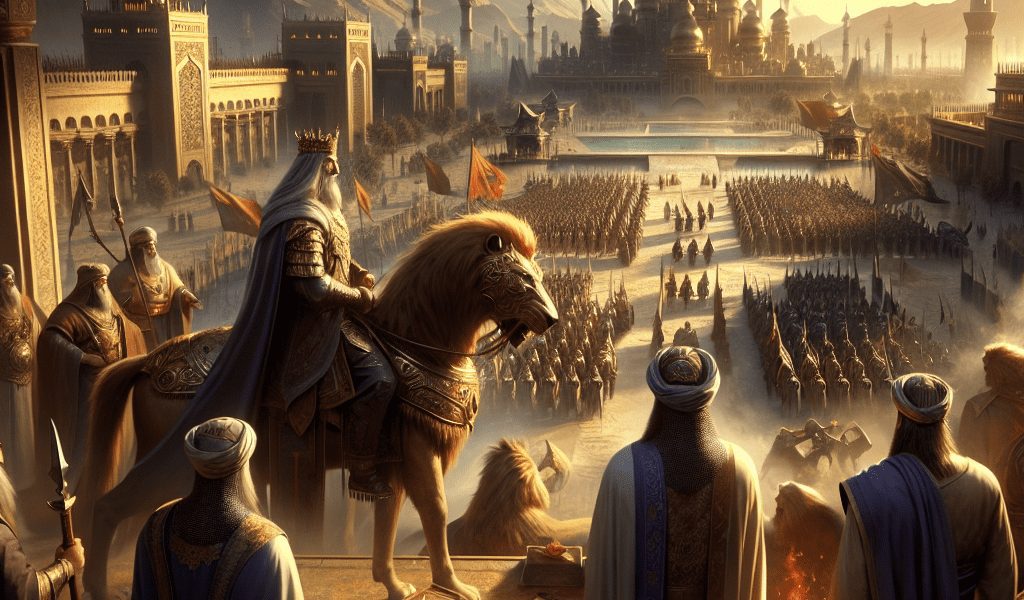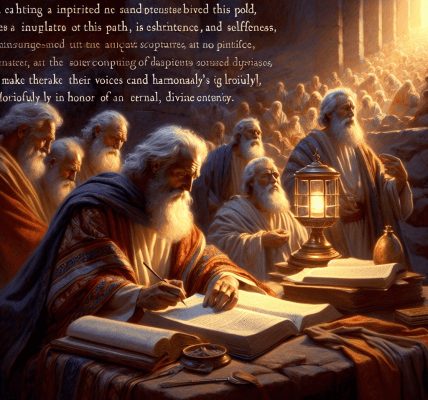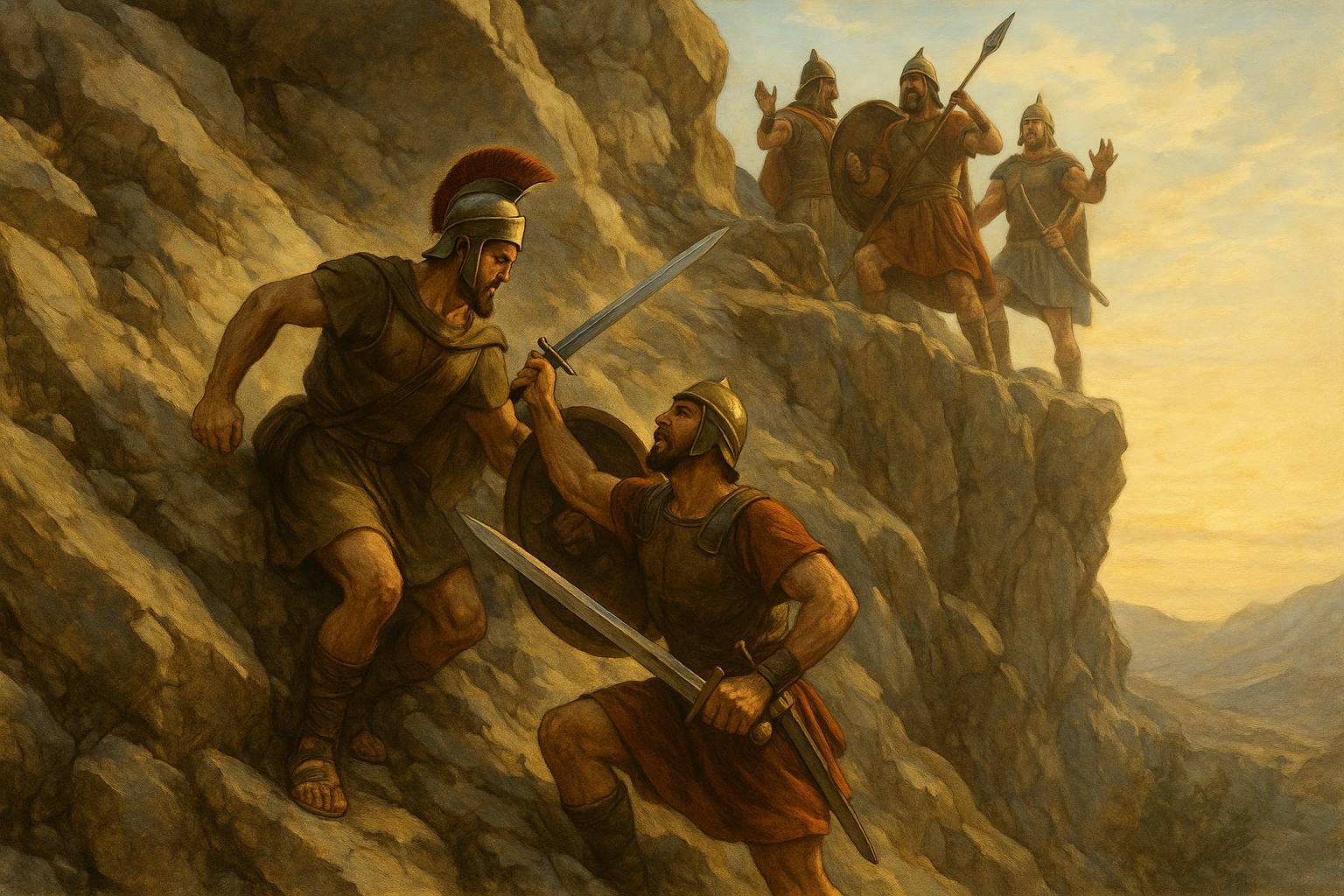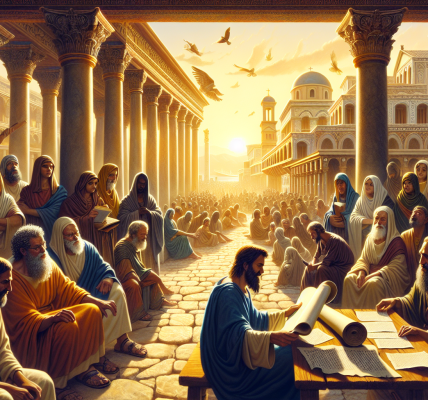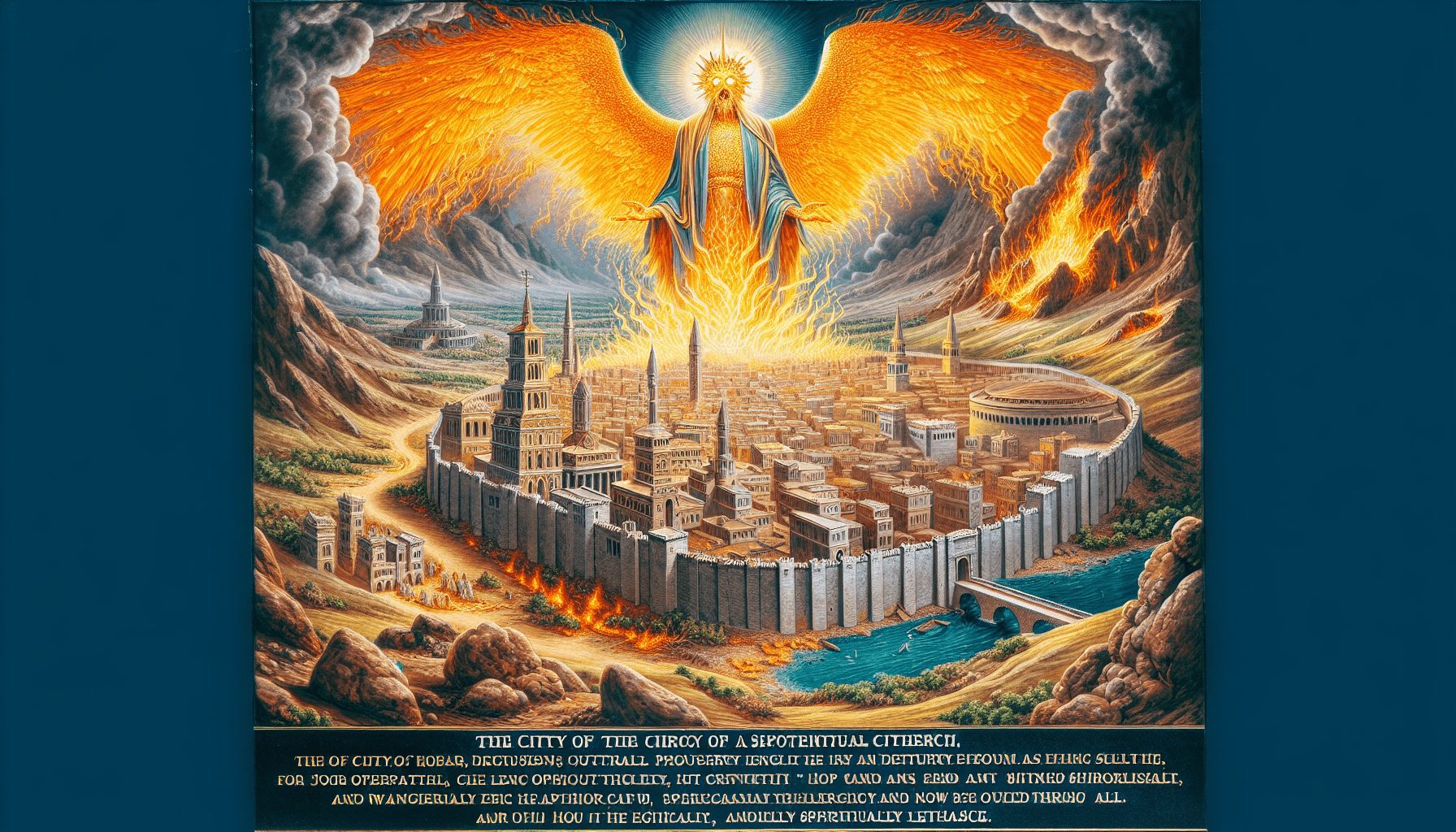Once upon a time, there was a fierce and respected ruler named Joshua, who had led the Israelites to triumphant victories over Jericho and Ai, devastating these cities and their kings completely. His reputation struck fear into the hearts of the surrounding rulers. His recent peace pact with Gibeon, known for its strength and considerable size, only confirmed their worst suspicions.
Adoni-Zedek, the king of Jerusalem, was particularly disturbed. The prospect of an alliance between Gibeon and Israel posed a grave threat. Thus, he decided to seek help from his peers, sending messages to Hoham of Hebron, Piram of Jarmuth, Japhia of Lachish, and Debir of Eglon. Together, they formed a formidable alliance, deciding to wage war against Gibeon, the city that had betrayed them to join Israel.
As the enemy forces approached, Gibeon cried out for help to their new allies at Gilgal, informing them of the siege they faced. Seeing their loyalty and desperation, Joshua could not ignore their plea. So, he gathered his warriors – strong, mighty men of valor – and set forth to aid them. As they embarked on their mission, they received God’s assurance. Jehovah told Joshua not to fear as he had already delivered the enemy into their hands.
Joshua, under the cover of night, took his army from Gilgal to Gibeon, launching a surprise attack on the allied forces. Jehovah muddled the forces, allowing Joshua and his warriors to wreak havoc on their enemies, slaying many. Their destruction was amplified by an act of God, as He rained down large hailstones, leading to the death of more enemies than those killed by the swords of the Israelites.
Then, in the heat of battle, Joshua turned to the sky and commanded the sun to stand still over Gibeon, and the moon over the valley of Aijalon. In a miraculous display of obedience, the sun halted and the moon stood still, allowing Joshua and his men sufficient daylight to complete their conquest. Never had there been a day where the heavens heeded the command of a man, as Jehovah demonstrated His favor for Israel.
With the defeat of the allied forces, the five enemy kings retreated, hiding in a cave at Makkedah. Upon discovering this, Joshua ordered large stones to seal the mouth of the cave and guards to monitor it. His men were told to continue pursuing the enemy, showing them no mercy even as they attempted retreats to their cities. Once the battle was over and the enemies were vanquished, the people returned to Joshua at Makkedah, no one daring to criticise Israel.
Joshua then commanded his army to bring forth the hidden kings. They were dragged out of the cave and at the foot of the Israelite chiefs, they symbolically placed their feet on the necks of the conquered kings, a sign of their total dominance. Fear not, Joshua proclaimed, for such would be the fate of all their future enemies.
Afterwards, Joshua delivered his own justice. He executed the kings and hung their bodies on trees. Come sundown, he ordered them taken down and thrown back into the cave, their makeshift tomb sealed with large stones, a monument of their defeat till this day.
The victorious Joshua took Makkedah next, annihilating the city and its king with the same brutal efficiency they had come to be known for. He then led his people on a conquering spree, taking Libnah, Lachish, Eglon, and Hebron, cities they took and smote mercilessly, leaving no survivors. Even the king of Gezer, who had come to aid Lachish, fell.
Joshua and his forces delivered the same fate to Debir, destroying all residents. His course of devastation was not random but intentional, taking over the hill-country, the South, the lowland, and the slopes, ridding the land of any living enemy.
The once formidable rulers were no more, and the stretch from Kadesh-barnea to Gaza, Goshen to Gibeon, all belonged to Israel. The quick, overwhelming victories were because Jehovah, the God of Israel, had fought for them. Thus, Joshua, with the spoils of his conquests, returned to his camp at Gilgal, victorious and unchallenged.
